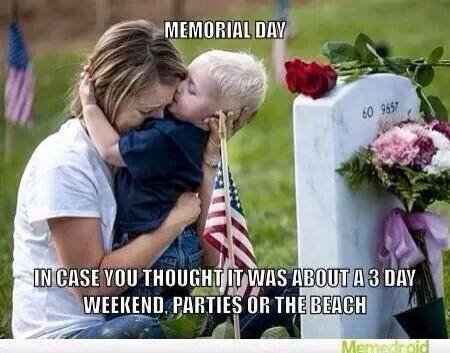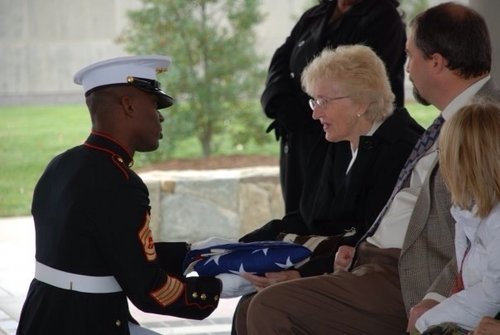Navigation
Install the app
How to install the app on iOS
Follow along with the video below to see how to install our site as a web app on your home screen.
Note: This feature may not be available in some browsers.
More options
You are using an out of date browser. It may not display this or other websites correctly.
You should upgrade or use an alternative browser.
You should upgrade or use an alternative browser.
Memorial Day
- Thread starter Festus
- Start date
noharleyyet
Well-known member
Good point Festus.
May god bless our fallen and give them peace & rest.
http://www.va.gov/opa/speceven/memd...ampaign=AUBURNVW_Fun+Facts+About+Memorial+Day
http://www.va.gov/opa/speceven/memd...ampaign=AUBURNVW_Fun+Facts+About+Memorial+Day
Memorial Day History
Three years after the Civil War ended, on May 5, 1868, the head of an organization of Union veterans — the Grand Army of the Republic (GAR) — established Decoration Day as a time for the nation to decorate the graves of the war dead with flowers. Maj. Gen. John A. Logan declared that Decoration Day should be observed on May 30. It is believed that date was chosen because flowers would be in bloom all over the country.
The first large observance was held that year at Arlington National Cemetery, across the Potomac River from Washington, D.C.
The ceremonies centered around the mourning-draped veranda of the Arlington mansion, once the home of Gen. Robert E. Lee. Various Washington officials, including Gen. and Mrs. Ulysses S. Grant, presided over the ceremonies. After speeches, children from the Soldiers’ and Sailors’ Orphan Home and members of the GAR made their way through the cemetery, strewing flowers on both Union and Confederate graves, reciting prayers and singing hymns.
Zach
Well-known member
Amen!
I buy a new flag for outside the house every Memorial Day.
To bad we've gotten away from celebrating Armed Forces Day(last weekend).
I buy a new flag for outside the house every Memorial Day.
To bad we've gotten away from celebrating Armed Forces Day(last weekend).
deer_shooter
Well-known member
Heartfelt thank you to all who served and are serving now. To those who have fallen, Godspeed.
Semper Fi
Semper Fi
MinnesotaHunter
Well-known member
In Flanders fields the poppies blow
Between the crosses, row on row,
That mark our place; and in the sky
The larks, still bravely singing, fly
Scarce heard amid the guns below.
We are the Dead. Short days ago
We lived, felt dawn, saw sunset glow,
Loved and were loved, and now we lie,
In Flanders fields.
Take up our quarrel with the foe:
To you from failing hands we throw
The torch; be yours to hold it high.
If ye break faith with us who die
We shall not sleep, though poppies grow
In Flanders fields.
-John McCrae
Between the crosses, row on row,
That mark our place; and in the sky
The larks, still bravely singing, fly
Scarce heard amid the guns below.
We are the Dead. Short days ago
We lived, felt dawn, saw sunset glow,
Loved and were loved, and now we lie,
In Flanders fields.
Take up our quarrel with the foe:
To you from failing hands we throw
The torch; be yours to hold it high.
If ye break faith with us who die
We shall not sleep, though poppies grow
In Flanders fields.
-John McCrae
L. I. Yankee
New member
God bless all our fallen hero's.....
jryoung
Well-known member
In Flanders fields the poppies blow
Between the crosses, row on row,
That mark our place; and in the sky
The larks, still bravely singing, fly
Scarce heard amid the guns below.
We are the Dead. Short days ago
We lived, felt dawn, saw sunset glow,
Loved and were loved, and now we lie,
In Flanders fields.
Take up our quarrel with the foe:
To you from failing hands we throw
The torch; be yours to hold it high.
If ye break faith with us who die
We shall not sleep, though poppies grow
In Flanders fields.
-John McCrae
10th grade, English Class we were reading All Quiet on the Western Front and Mr. Cleveland used this poem to help illustrate context of the war and provide us with some thought for the coming holiday weekend. One of those distinct moments in school I remember so clearly, I can still hear his voice. Having nearly every male in my family a vet at the time, most recently with my brother in GW1, it really hit home and I've thought differently about the weekend ever since.
http://onyourownadventures.com/hunttalk/showthread.php?t=254655&referrerid=20127
http://onyourownadventures.com/hunttalk/showthread.php?t=250479&referrerid=20127
In remembrance of Capt. Aaron Blanchard.
http://onyourownadventures.com/hunttalk/showthread.php?t=250479&referrerid=20127
In remembrance of Capt. Aaron Blanchard.
tarheel
Well-known member
Off in the morning with my VFW cronies to set flags in the cemeteries. I'll set one for Capt. Blanchard.
dustinf
Active member
Amen.
EODRay
Active member
A somber day for a lot of people. I must admit.......I'm struggling. I'm sitting here on a bank fishing and drinking and thinking. God bless all who have gone before.
JohnCushman
Well-known member
Me and My buddy Izzy that died over in Iraq. I carry his obituary from Stars and Stripes in my wallet to this day...

Another fraction of a second and he'd be at home with his family and I wouldn't be stuck living this cruel joke of an existence with these memories and dreams that I can't drink away and my kids would be rich

Another fraction of a second and he'd be at home with his family and I wouldn't be stuck living this cruel joke of an existence with these memories and dreams that I can't drink away and my kids would be rich
Last edited:
My grandmother used to share the quote below with us. At the time, it was about playing in the pool at her house though as I grew older - I found myself appreciating the sentiment shared.
I am the holder of my uncle's flag from his service in Vietnam. 1968 Quang Tin

Interesting comment left on the VVMF.org website:
I am the holder of my uncle's flag from his service in Vietnam. 1968 Quang Tin

"I have never been able to think of the day as one of mourning; I have never quite been able to feel that half-masted flags were appropriate on Decoration Day. I have rather felt that the flag should be at the peak, because those whose dying we commemorate rejoiced in seeing it where their valor placed it. We honor them in a joyous, thankful, triumphant commemoration of what they did. " -- Benjamin Harrison, 23rd President of the United States
Interesting comment left on the VVMF.org website:
Dear CPL John Howard PriesthoffII, sirAs an American, I would like to thank you for your service and for your sacrifice made on behalf of our wonderful country. The youth of today could gain much by learning of heroes such as yourself, men and women whose courage and heart can never be questioned.May God allow you to read this, and may He allow me to someday shake your hand when I get to Heaven to personally thank you. May he also allow my father to find you and shake your hand now to say thank you; for America, and for those who love you.With respect, and the best salute a civilian can muster for you, Sir.
Last edited:
Sabot
Active member
- Joined
- Dec 5, 2011
- Messages
- 193
I sat on my comfy civilian couch in 2003 and watched the Iraq war unfold on Fox News. Twice, a few months earlier I had been asked to volunteer to join the fight and I declined. I had left active duty in 1999 and my reserve post 10 days before 9/11. I sat and watched as my younger brother who had followed me into the Corps a year after I joined sat onboard a ship in the Med waiting to join the fight. Within days a Marine I had served with for 2 years was killed when his tank flipped off of a bridge during a night convoy and his entire crew drowned.
I have made my peace with my decision to leave the Corps and to not respond when asked to volunteer to go back, but I will never feel worthy of the gratitude that people convey to me for my service. The honor belongs to men like SSGT Donald May. May he rest in peace and may we never forget.
I have made my peace with my decision to leave the Corps and to not respond when asked to volunteer to go back, but I will never feel worthy of the gratitude that people convey to me for my service. The honor belongs to men like SSGT Donald May. May he rest in peace and may we never forget.
T Bone
Well-known member
Thanks to all that have served.
I'm thankful every day that my M.I.A. father was recovered safe and mostly sound.
My son just enlisted in the Corps. He leaves for boot in October. Looking forward to one more 3 generation hunt in Idaho this fall.
I'm thankful every day that my M.I.A. father was recovered safe and mostly sound.
My son just enlisted in the Corps. He leaves for boot in October. Looking forward to one more 3 generation hunt in Idaho this fall.
pointingdogsrule
Well-known member
AMEN
good luck to all
the dog
good luck to all
the dog
MinnesotaHunter
Well-known member
Memorial Day 2005
I landed in Bangor, Maine on Memorial Day 2005. I was returning from my first deployment as a Recon and Surveillance Platoon Leader in AFG. I will never forget the feeling of seeing 50-100 local citizens lining the hallways of that airport at 6:30 in the morning. Most people don't realize this, but alot of flights bringing Soldiers home over the last 13 years have come through that little airport in Bangor, and I know that everytime I have come through, someone was there to great me, they didn't know my name, or where I came from, but they were there. I spoke to my wife for the first time from US soil on a cell phone handed to me by a stranger, telling me to call whoever I wanted. I am not a super emotional guy, but thinking about the times I have come through Bangor, tugs at the heart strings. I hope the people of Bangor understand what their time means to people like me.
The first time I came home we had just gone through a particularly difficult few months. Lots of fighting and too many awards for valor in combat and purple hearts. worst of all the result of the previous 5 months was 4 familys that will never be whole again.
RIP: Papi, Shane, Rich, Nick, and God bless your families.
Unfortunately this list in not comprehensive, just a small window of the loss I saw, during a particularly bad few months. I like to think this experience has made me a better man/husband/friend/leader, made me stronger, and made me better appreciate what I have.
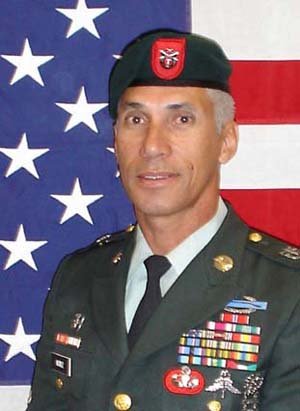
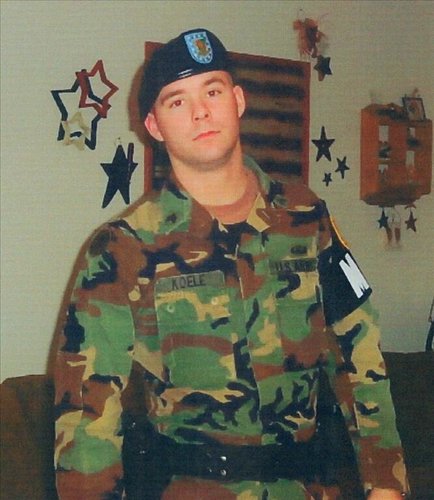
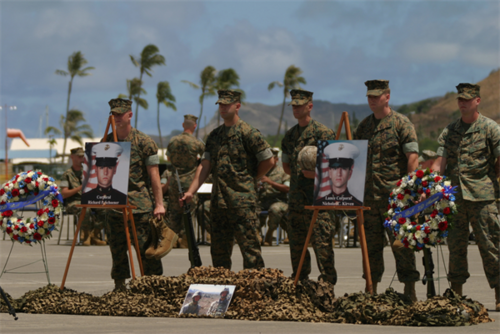
I landed in Bangor, Maine on Memorial Day 2005. I was returning from my first deployment as a Recon and Surveillance Platoon Leader in AFG. I will never forget the feeling of seeing 50-100 local citizens lining the hallways of that airport at 6:30 in the morning. Most people don't realize this, but alot of flights bringing Soldiers home over the last 13 years have come through that little airport in Bangor, and I know that everytime I have come through, someone was there to great me, they didn't know my name, or where I came from, but they were there. I spoke to my wife for the first time from US soil on a cell phone handed to me by a stranger, telling me to call whoever I wanted. I am not a super emotional guy, but thinking about the times I have come through Bangor, tugs at the heart strings. I hope the people of Bangor understand what their time means to people like me.
The first time I came home we had just gone through a particularly difficult few months. Lots of fighting and too many awards for valor in combat and purple hearts. worst of all the result of the previous 5 months was 4 familys that will never be whole again.
RIP: Papi, Shane, Rich, Nick, and God bless your families.
Unfortunately this list in not comprehensive, just a small window of the loss I saw, during a particularly bad few months. I like to think this experience has made me a better man/husband/friend/leader, made me stronger, and made me better appreciate what I have.



putm2sleep
New member
God bless you all!
My grandma - I LOVE YOU! Grandpa you too
Marcella (Larson) Brooks, 92, passed away Feb. 4, in the loving arms of her family. She was born on Dec, 19, 1911, in Pipestone County, Minn. She was a resident and graduated high school in Story City. She graduated from Iowa Lutheran Hospital school of nursing in Des Moines. In 1942 Marcella volunteered in the Nurse Corps in World War II, serving three and a half years. After the war she was married to William R. Brooks of McPherson, Kan. They celebrated their 50th anniversary in 1996 in Council Bluffs.
My grandma - I LOVE YOU! Grandpa you too
Marcella (Larson) Brooks, 92, passed away Feb. 4, in the loving arms of her family. She was born on Dec, 19, 1911, in Pipestone County, Minn. She was a resident and graduated high school in Story City. She graduated from Iowa Lutheran Hospital school of nursing in Des Moines. In 1942 Marcella volunteered in the Nurse Corps in World War II, serving three and a half years. After the war she was married to William R. Brooks of McPherson, Kan. They celebrated their 50th anniversary in 1996 in Council Bluffs.




